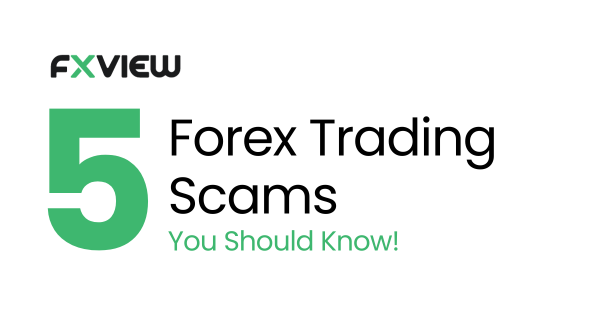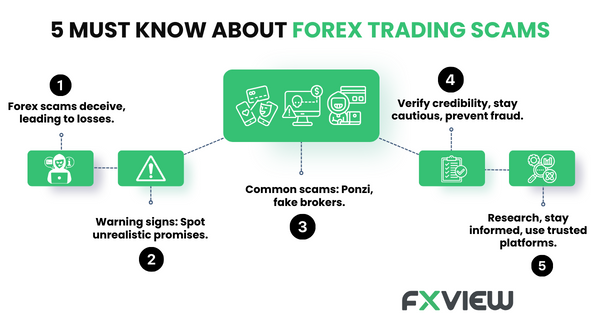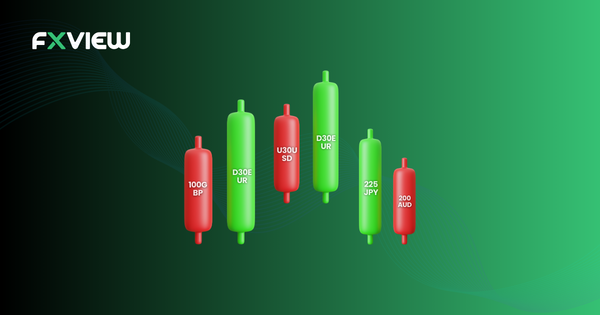
5 Forex Trading Scams You Should Know!
The forex market is a vast and challenging arena where currencies are traded round the clock. However, this financial ecosystem is not immune to scams and fraudulent activities. To help you stay safe in the forex world, we’ve compiled essential information on forex scams, how to spot them, and tips to protect your investments. Let’s dive in.

What are Forex Trading Scams?
Forex trading scams are deceptive practices or schemes in the foreign exchange market designed to defraud traders and investors. These scams can take various forms, and it’s crucial to recognize them to protect your investments.
Top 5 warning signs of Forex Trading Scams
- Unrealistic Promises: Be wary of promises of guaranteed profits or schemes that claim you can get rich quickly with little effort. If it sounds too good to be true, it probably is.
- Lack of Risk Warnings: Legitimate forex brokers always warn the traders of the risk of losing the amount invested. If such a warning is missing, it can be considered a sign of a potential scam.
- Lack of Regulation: Legitimate forex brokers are regulated by recognized authorities. If a broker operates without proper regulation, it’s a red flag.
- Pressure to Invest Quickly: Scammers often use high-pressure tactics to push you into making hasty investment decisions. Legitimate brokers will give you time to evaluate your choices and make your own decisions.
- Obscure fees: Transparent brokers will clearly outline their fees. Hidden or unclear costs can signal a scam.
- Difficulty Withdrawing Funds: If you encounter difficulty withdrawing your profits or initial investment, it’s a strong indicator of Forex Trading Scams.
Types of Forex Trading Scams
- Ponzi Schemes: Scammers promise high returns to earlier investors using funds from new investors, creating a cycle until the scheme collapses.
- Signal Seller Scams: Fraudulent individuals or companies offer trading signals, claiming they can provide winning strategies. In reality, these signals often lead to losses.
- Fake Brokerages: Some brokers are not what they claim to be. They may manipulate trades, refuse withdrawals, or simply disappear with your funds.
- Phishing and Malware: Cybercriminals use fake websites or emails to trick traders into revealing sensitive information or installing malware.
How do I know if a Trader or Broker is legit?
- Check Regulatory Compliance: Verify if the broker is regulated by a reputable authority in their country of operation. You may refer to the regulator’s registry to cross-check.
- Read Reviews: Look for independent reviews and testimonials from other traders to gauge their experiences.
- Transparent Practices: Legitimate brokers should provide clear information about fees, spreads, cost charges, and trading conditions.
- Customer Support: Test the broker’s customer support. Legitimate brokers offer prompt and helpful assistance.
- Demo Accounts: Most brokers offer demo accounts. You may use them to test the broker’s platform and services before committing to real funds.
Tips to avoid Forex Trading Scams
- Do Your Research: Investigate brokers thoroughly before opening an account or investing.
- Be Aware: Stay Informed, and keep up with forex news and trends to spot potential forex trading scams.
- Use Reputable Platforms: You may choose well-known trading platforms that have a track record of trustworthiness.
- Stay Skeptical: Be cautious of unsolicited offers, especially those promising guaranteed profits.
- Educate Yourself: Learn about forex trading to understand common practices and risks.
Key Takeaways
- Forex Scams Exist: Forex trading scams are deceptive practices in the foreign exchange market designed to defraud traders and investors.
- Spotting Scams: Be alert for signs of scams, including unrealistic promises, lack of regulation, lack of risk warning, pressure to invest quickly, obscure fees, and withdrawal difficulties.
- Types of Scams: Common forex scams include Ponzi schemes, signal seller scams, fake brokerages, and phishing/malware attacks.
- Verify Legitimacy: Always check a trader or broker’s regulatory compliance, read reviews, and test their customer support and demo accounts.
- Avoiding Scams: To avoid scams, you may conduct thorough research, stay informed about forex news and trends, use reputable trading platforms, maintain a skeptical mindset, and educate yourself about forex trading practices and risks.
Conclusion
Navigating the forex market requires vigilance and due diligence to avoid falling victim to forex trading scams. By staying informed, conducting your own research, updating yourself with market news, and following these tips, you can protect yourself and your investments from fraudulent activities. Remember, it’s better to be safe than sorry in the forex world.
Disclaimer: The information in this article is provided for educational and informational purposes only and is not intended to be, nor does it constitute financial, investment or trading advice. You should not make any financial, investment or trading decision based on the information provided in this article without performing your own research or seeking advice from an independent advisor.


